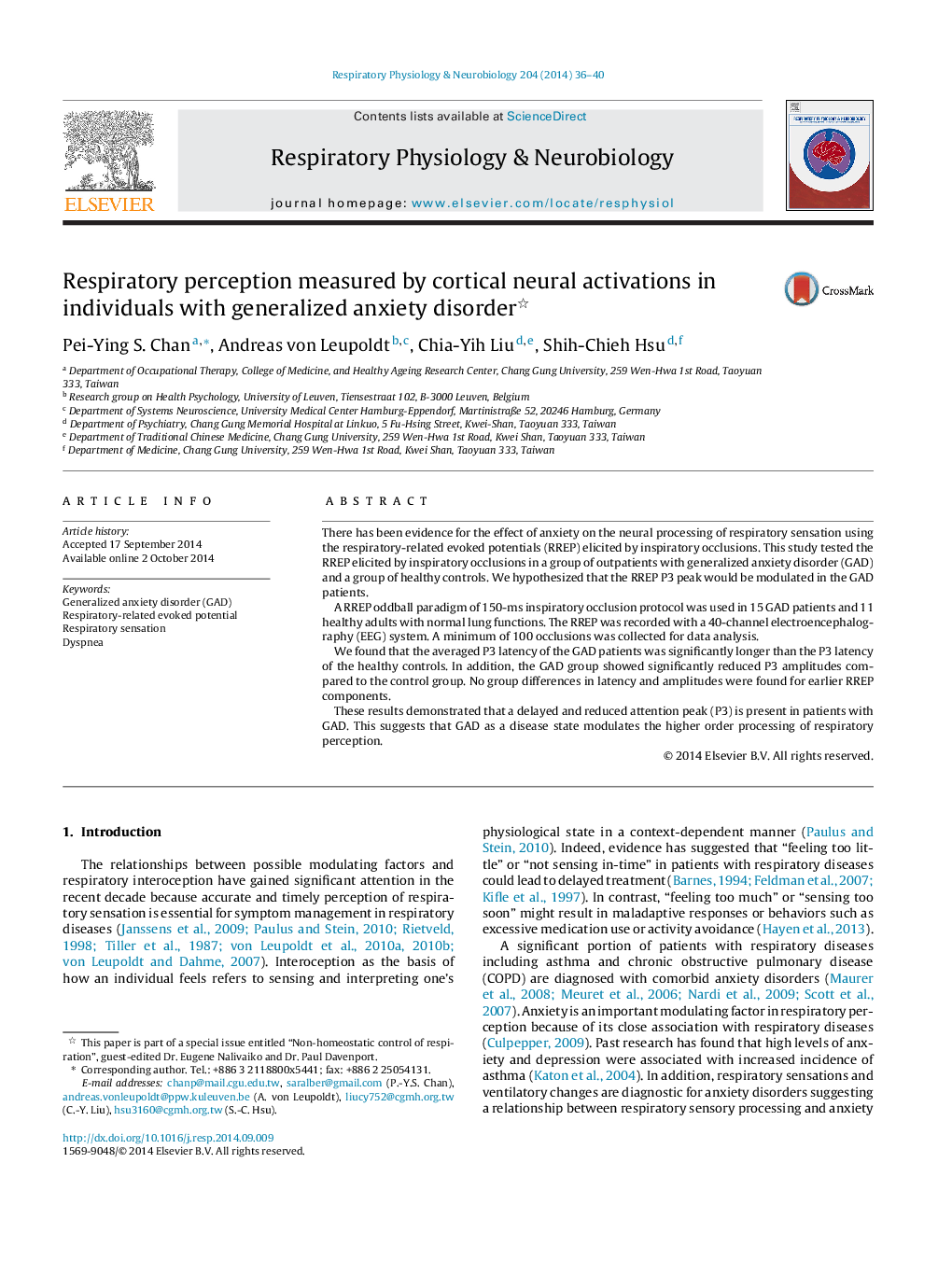| Article ID | Journal | Published Year | Pages | File Type |
|---|---|---|---|---|
| 2846949 | Respiratory Physiology & Neurobiology | 2014 | 5 Pages |
•We tested respiratory mechanosensation in individuals with generalized anxiety disorder (GAD).•We compared respiratory-related evoked potentials (RREP) in individuals with GAD and in healthy controls.•Longer latencies and reduced amplitudes for the RREP P3 peak were observed in the patients with GAD.•No group differences were observed in the earlier RREP peaks.•The results suggest that GAD as a disease state could cause a delay in attentional processing of respiratory sensation.
There has been evidence for the effect of anxiety on the neural processing of respiratory sensation using the respiratory-related evoked potentials (RREP) elicited by inspiratory occlusions. This study tested the RREP elicited by inspiratory occlusions in a group of outpatients with generalized anxiety disorder (GAD) and a group of healthy controls. We hypothesized that the RREP P3 peak would be modulated in the GAD patients.A RREP oddball paradigm of 150-ms inspiratory occlusion protocol was used in 15 GAD patients and 11 healthy adults with normal lung functions. The RREP was recorded with a 40-channel electroencephalography (EEG) system. A minimum of 100 occlusions was collected for data analysis.We found that the averaged P3 latency of the GAD patients was significantly longer than the P3 latency of the healthy controls. In addition, the GAD group showed significantly reduced P3 amplitudes compared to the control group. No group differences in latency and amplitudes were found for earlier RREP components.These results demonstrated that a delayed and reduced attention peak (P3) is present in patients with GAD. This suggests that GAD as a disease state modulates the higher order processing of respiratory perception.
